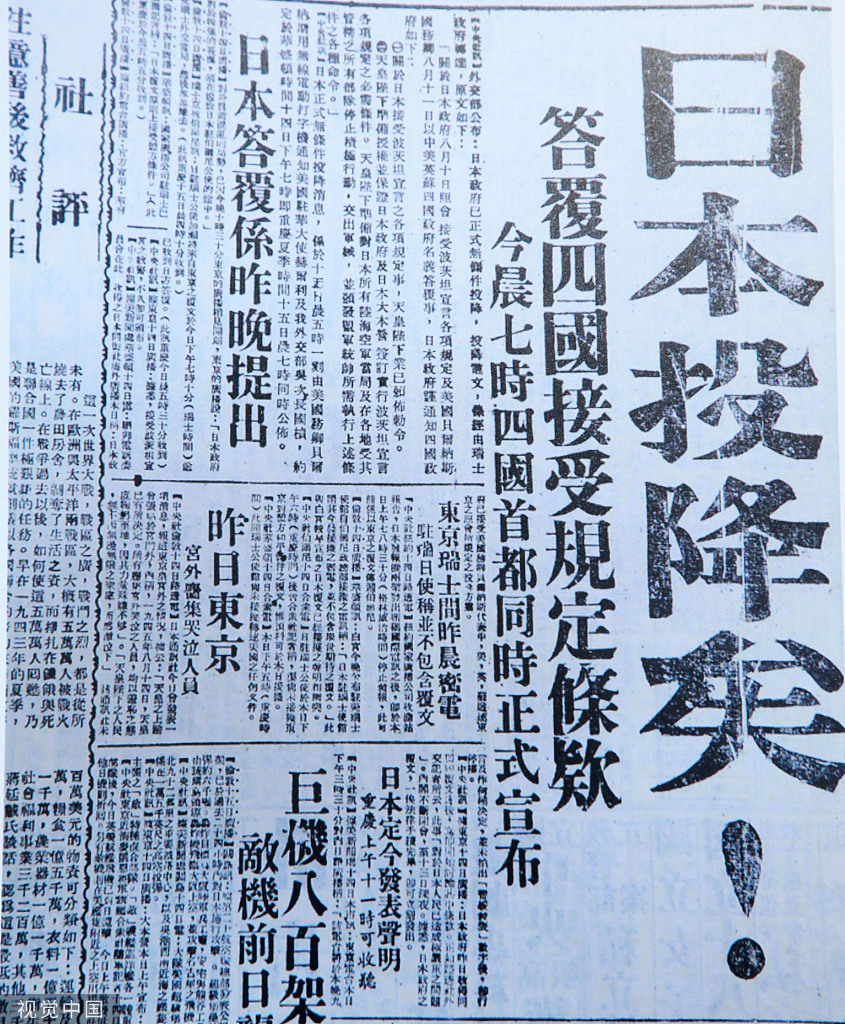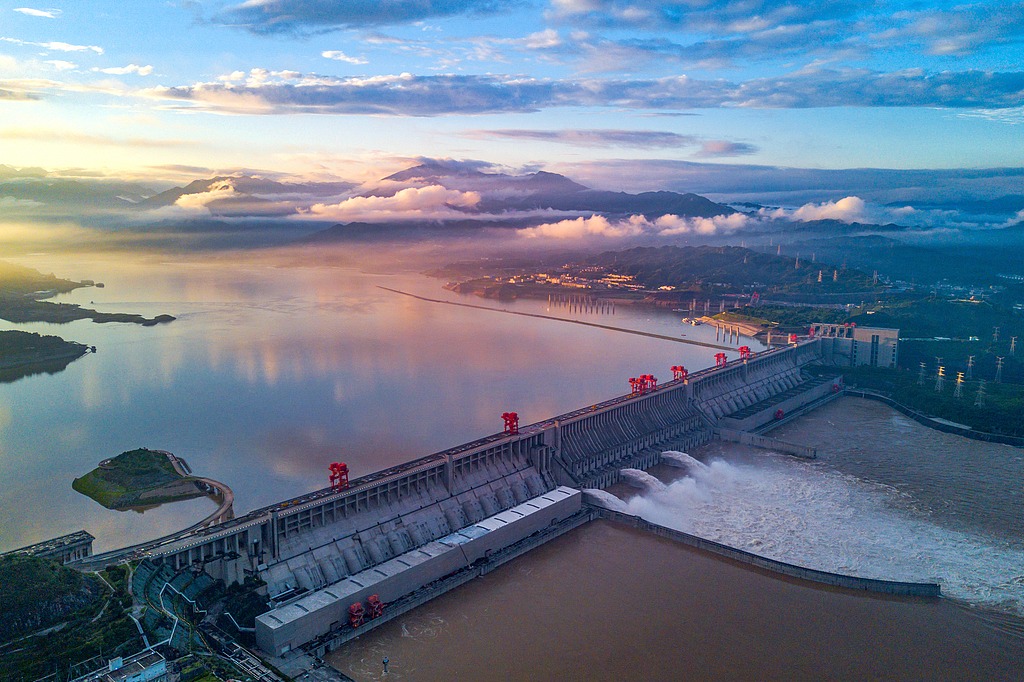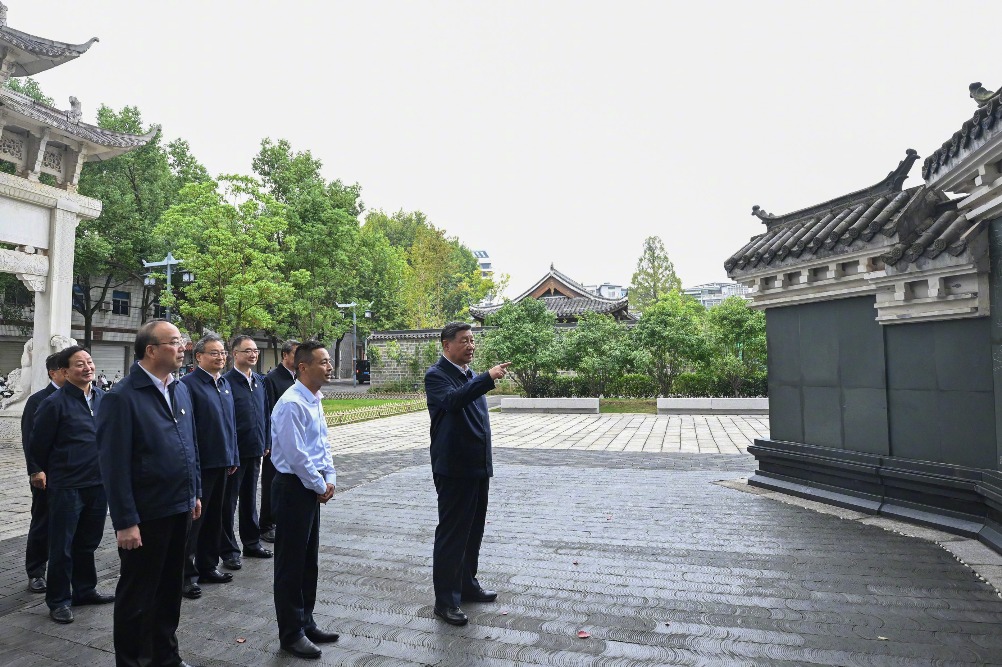Japan should never whitewash its war past


Aug 15 marks the 77th anniversary of Japan's unconditional surrender during World War II. Keeping the darkest days in mind and cherishing the hard-won peace, memorial events are being held across China to pay tribute to the victims and unsung heroes.
In contrast, on Monday, Japanese Prime Minister Fumio Kishida sent an offering to the Yasukuni Shrine, which honors 2.5 million Japanese war dead, including 14 Class-A convicted war criminals in WWII. Some heavyweight cabinet members and officials such as the economic security minister even visited the shrine seen by neighboring countries as a symbol of Japan's militant past.
The visits and ritual offerings made in person or by proxy at the infamous shrine in Tokyo by Japanese leaders, officials and lawmakers shows how some conservative Japanese politicians haven't really learned from history or regret Japan's controversial past. No wonder such visits have sparked strong criticism from China, the Republic of Korea and other countries that Japan had invaded before and during World War II.
A day after Japan's Minister of Economy, Trade and Industry Yasutoshi Nishimura visited the Yasukuni Shrine on Saturday, China's Foreign Ministry Spokesperson Wang Wenbin said this once again shows the Japanese government's erroneous attitude toward historical issues.
Japan should never forget it still owes an explanation to its Asian neighbors for its actions in past decades. Instead of introspecting on its aggression during WWII, Tokyo keeps distorting and whitewashing its historical misdeeds and even acts as a "victim" because of the two atom bombs that were dropped on its territory to end the war in 1945.
Japan's worrying trend of abandoning its pacifist path, spurred by the US' Indo-Pacific Strategy, has been ringing alarm bells in the region. Tokyo stands with Washington to contain China and some ill-intentional Japanese politicians keep advocating the external expansion, especially after the assassination of former prime minister Shinzo Abe last month, an accident that may accelerate Japan's military transformation.
With US support and a domestic ideological confrontation, it is not surprising that Tokyo is boosting defense spending and even trying to bridge NATO and the Asia-Pacific region, making peaceful development in the area increasingly difficult.
Japanese politicians must not only realize and acknowledge their historical mistakes, but also stop letting the US disrupt the regional situation. All those who love peace should remember Aug 15 as an important date and never give potential militarists a chance to go on the wrong path and endanger regional peace once again.
The author is a writer with China Daily.


































